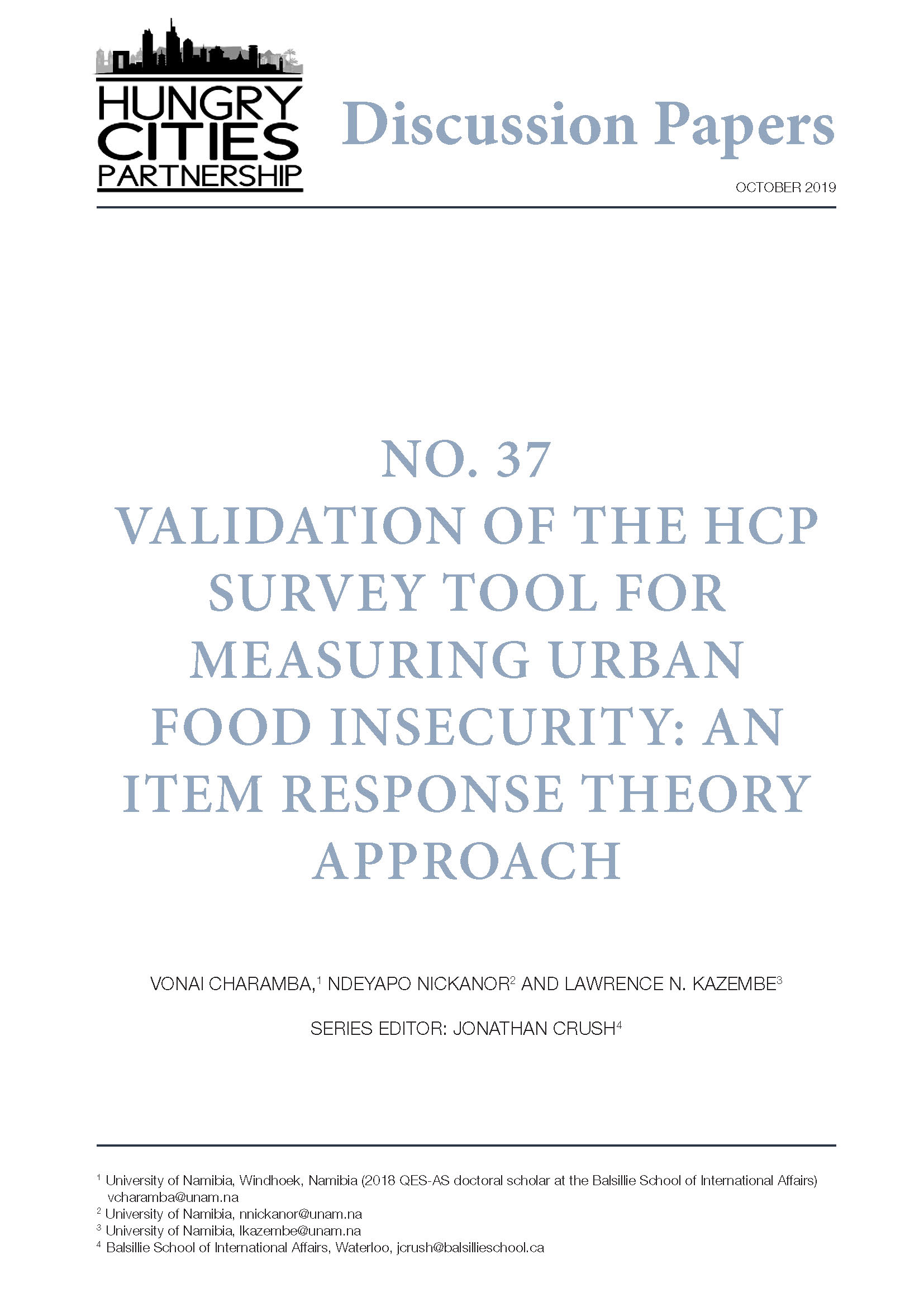There is some controversy on the applicability of the summand-based Household Food Security Assessment Score (HFIAS) and Household Dietary Diversity Score (HDDS) as measures of food insecurity in urban areas in the Global South. These measures were primarily designed for measurement in rural communities where food insecurity itself was first identified and is still predominantly conceptualized. The objective of the research reported in this paper is to assess the internal and external validity of the HFIAS and the HDDS in determining food insecurity levels in an urban context, using HCP data for urban households in Windhoek, Namibia. Validation was performed on data collected through a city-wide survey of 890 randomly-selected households in Windhoek. Internal validation of sum-based measures is dependent on them meeting the assumptions of item response theory (IRT) Rasch models. For external validation, the HFIAS and the HDDS scores were correlated with variables including household income, the Lived Poverty Index (LPI), access to water, access to medical facilities, months of adequate food supply, and dwelling type. The Rasch IRT model and the area under the curve (AUC) of the receiver operating curve (ROC) were applied to validate the HDDS with binary response items, while the Partial Credit Model validated the HFIAS with polytomous response items. Principal Components Analysis (PCA) and Mokken analysis were applied to determine their dimensionality and monotonicity. The results from the ROC show that the HDDS is effective in separating Windhoek urban households according to their dietary quality and quantity. The results from the Mokken analysis, PCA, and PCM led to the conclusion that the HFIAS is monotonically non-decreasing, unidimensional, and no differential-item-functioning; all item-fit statistics were “very good” justifying the use of the HFIAS as a measure of food insecurity in Windhoek. The correlations indicated that low-income households have poor diets and higher levels of food insecurity, as expected. The paper concludes that the HDDS and the HFIAS indices are internally and externally valid in measuring the food insecurity status of Windhoek urban households.

